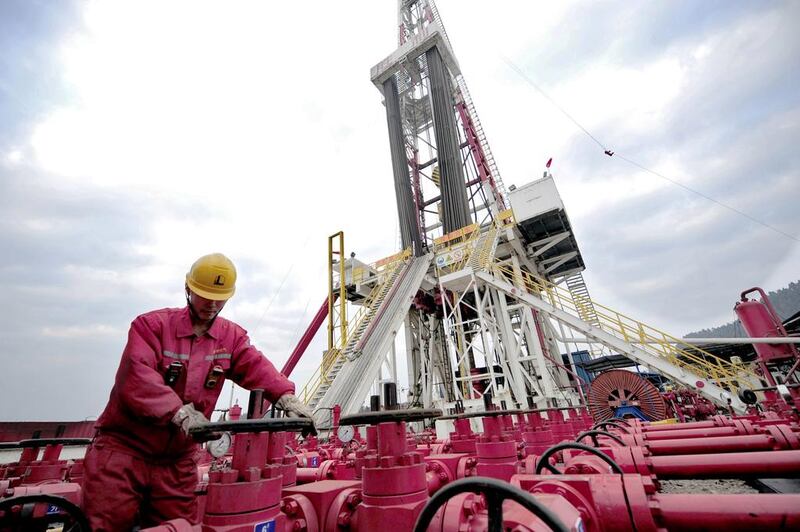Ministers and chief executives from the world's top energy powers gather in Singapore this week as questions loom about the outlook for China, the centre of the world's demand growth.
The main subject on the minds of the officials and their Asian counterparts will be the future of demand growth in China, which became the world's top oil importer this month.
That underscores the importance of its demand, given that a rise in hydrocarbons production in economically stagnant Europe and North America has trimmed energy imports.
On Thursday, HSBC said China's flash Purchasing Managers' Index, a preliminary indicator of economic expansion, had hit a seven-month high of 50.9. Figures above 50 indicate economic growth.
In the long term, Asia's role in energy markets has the potential to shift as China explores for shale gas in the hope of replicating the energy bonanza in the United States.
The addition of Chinese gas production to global supplies could also help to alleviate shortages in the Arabian Gulf.
Singapore International Energy Week, an annual conference at the nexus of oil and gas trading between Asia and the Middle East, starts today with speeches by Suhail Al Mazrouei, the UAE's Minister of Energy, and Khalid bin Khalifa Al Thani, the chief executive of Qatargas, the world's top liquefied natural gas producer.
At the conference, renewables and energy efficiency will be on the agenda. Other speakers include Adnan Amin, the director general of the Abu Dhabi-based International Renewable Energy Agency; Christiana Figueres, the executive secretary of the United Nations Framework Convention on Climate Change; and Fatih Birol, the chief economist of the International Energy Agency.
Singapore's Energy Market Authority is the organiser of the conference. The country has been keen to expand economic ties with the UAE.
Last December, it appointed its first resident ambassador to Abu Dhabi. Bilateral trade last year grew 25 per cent to US$25.5 billion, outpacing the UAE's bilateral trade with Saudi Arabia.
Mr Al Mazrouei is scheduled today to sign an memorandum of understanding on energy cooperation between the UAE and Singapore, which has a free trade agreement with the GCC.
ayee@thenational.ae
China’s demand outlook to top agenda at Singapore energy meet
In the long term, Asia’s role in energy markets has the potential to shift as China explores for shale gas in the hope of replicating the energy bonanza in the United States.

Editor's picks
More from the national




